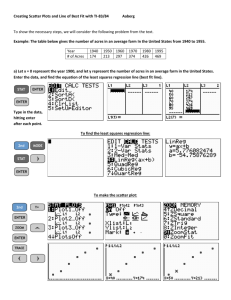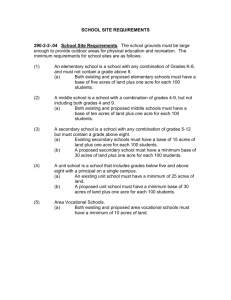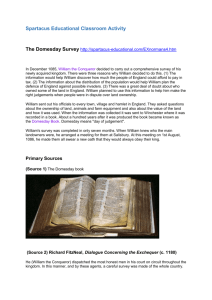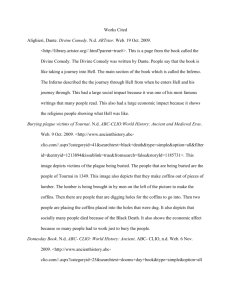William
advertisement
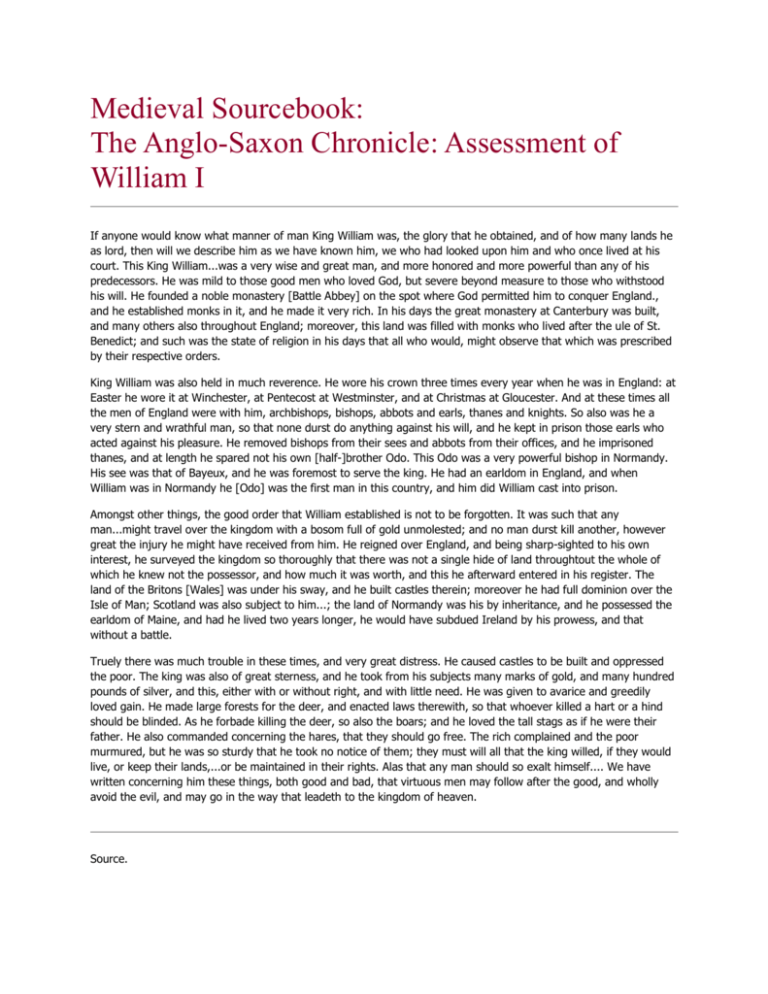
Medieval Sourcebook: The Anglo-Saxon Chronicle: Assessment of William I If anyone would know what manner of man King William was, the glory that he obtained, and of how many lands he as lord, then will we describe him as we have known him, we who had looked upon him and who once lived at his court. This King William...was a very wise and great man, and more honored and more powerful than any of his predecessors. He was mild to those good men who loved God, but severe beyond measure to those who withstood his will. He founded a noble monastery [Battle Abbey] on the spot where God permitted him to conquer England., and he established monks in it, and he made it very rich. In his days the great monastery at Canterbury was built, and many others also throughout England; moreover, this land was filled with monks who lived after the ule of St. Benedict; and such was the state of religion in his days that all who would, might observe that which was prescribed by their respective orders. King William was also held in much reverence. He wore his crown three times every year when he was in England: at Easter he wore it at Winchester, at Pentecost at Westminster, and at Christmas at Gloucester. And at these times all the men of England were with him, archbishops, bishops, abbots and earls, thanes and knights. So also was he a very stern and wrathful man, so that none durst do anything against his will, and he kept in prison those earls who acted against his pleasure. He removed bishops from their sees and abbots from their offices, and he imprisoned thanes, and at length he spared not his own [half-]brother Odo. This Odo was a very powerful bishop in Normandy. His see was that of Bayeux, and he was foremost to serve the king. He had an earldom in England, and when William was in Normandy he [Odo] was the first man in this country, and him did William cast into prison. Amongst other things, the good order that William established is not to be forgotten. It was such that any man...might travel over the kingdom with a bosom full of gold unmolested; and no man durst kill another, however great the injury he might have received from him. He reigned over England, and being sharp-sighted to his own interest, he surveyed the kingdom so thoroughly that there was not a single hide of land throughtout the whole of which he knew not the possessor, and how much it was worth, and this he afterward entered in his register. The land of the Britons [Wales] was under his sway, and he built castles therein; moreover he had full dominion over the Isle of Man; Scotland was also subject to him...; the land of Normandy was his by inheritance, and he possessed the earldom of Maine, and had he lived two years longer, he would have subdued Ireland by his prowess, and that without a battle. Truely there was much trouble in these times, and very great distress. He caused castles to be built and oppressed the poor. The king was also of great sterness, and he took from his subjects many marks of gold, and many hundred pounds of silver, and this, either with or without right, and with little need. He was given to avarice and greedily loved gain. He made large forests for the deer, and enacted laws therewith, so that whoever killed a hart or a hind should be blinded. As he forbade killing the deer, so also the boars; and he loved the tall stags as if he were their father. He also commanded concerning the hares, that they should go free. The rich complained and the poor murmured, but he was so sturdy that he took no notice of them; they must will all that the king willed, if they would live, or keep their lands,...or be maintained in their rights. Alas that any man should so exalt himself.... We have written concerning him these things, both good and bad, that virtuous men may follow after the good, and wholly avoid the evil, and may go in the way that leadeth to the kingdom of heaven. Source. from the Anglo-Saxon Chronicle, sub anno 1086, as it appears in F. A. Ogg, A Source Book of Medieval History (New York, 1907) THE DOMESDAY BOOK 1086 - Instructions and Extract THE DOMESDAY BOOK 1086 Inquisitio Eliensis . Domesday Book: Additamenta, p. 495. Latin. [TR Introduction] The first approach to a modern assessment roll or cataster is the well known Domesday Book. The existing literature on this remarkable memorial is so extensive, that it has not appeared advisable to quote largely from it. Our first quotation contains the instructions issued to the Commissioners who made the record. The second is a specimen return. There is a wide variety in the returns, though certain factors recur constantly in each statement. The survey is the most extensive document, embracing as it does the entire area of England held by the Conqueror, which we possess in regard to medieval times. It is important to note how the feudal power as founded by William is no longer dependent like the Empire of Charles upon the personal estates of the crown, but brings the entire land under its influence through the feudal dues, and thus paves the way for the modern state founded upon the obligations of all its citizens. INSTRUCTIONS FOR COLLECTION OF THE DOMESDAY RETURNS. Here is subscribed the inquisition of lands as the barons of the king have made inquiry into them; that is to say by the oath of the sheriff of the shire, and of all the barons and their Frenchmen, and the whole hundred, the priests, reeves, and six villains of each manor; then, what the manor is called, who held it in the time of king Edward, who holds now; how many hides, how many plows in demesne, how many belonging to the men, how many villains, how many cottars, how many serfs, how many free-men, how many socmen, how much woods, how much meadow, how many pastures, how many mills, how many fish-ponds, how much has been added or taken away, how much it was worth altogether at that time, and how much now, how much each free man or soeman had or has. All this threefold, that i8 to say in the time of king Edward, and when king William gave it, and as it is now; and whether more can be had than is had. EXTRACT FROM DOMESDAY SURVEY OF THE COUNTY OF NORFOLK. Domesday Book , Vol. 2, pp 153-l54. Latin. The land of Robert Malet. Fredrebruge Hundred and half Glorestorp. Godwin, a freeman, held it. Two carucates of land in the time of king Edward. Then and afterwards 8 villains; now 3. Then and afterwards 3 bordars; now 5. At all times 3 serfs, and 30 acres of meadow. At all times 2 carucates in demesne. Then half a carucate of the men, and now. Woods for 8 swine, and 2 mills. Here are located 13 socmen, of 40 acres of land. When it was received there were 2 r.,' now 1. At all times 8 swine, then 20 sheep, and it is worth 60 shillings. There is situated there, in addition, one berewick, as the manor of Heuseda. In the time of king Edward, 1 carucate of land; then and afterwards 7 villains, now 5. At all times 12 bordars, and 3 serfs, and 40 acres of meadow; 1 mill. Woods for 16 swine and 1 salt pond and a half Then 1 r., and now and 14 swine, 30 sheep, and 50 goats. In this berewick are located 3 socmen, of 10 acres of land, and it is worth 30 shillings. The two manors have 2 leagues in length and 4 firlongs in breadth. Whosoever is tenant there, returns 12 pence of the twenty shillings of geld. Scerpham Hundred Culverstestun Edric held it in the time of king Edward. Two carucates of land. At all tomes there were 4 villains, and 1 bordar, and 4 serfs; 5 acres of meadow and two carucates in the demesne. Then and afterwards 1 carucate, now one-hal£ At all times 1 mill and one fish-pond. Here is located 1 socmen of the king, of 40 acres of land; which his predecessors held only as commended and he claims his land from the gift of the king. Then and afterwards there was one carucate, now 2 bovates, and 2 acres of meadow. At all times two r.[note: word indicated by "r" has not been identified] , and 4 geese; then 300 sheep, now 300 less 12; then 16 swine now 3. Then and afterwards it was worth 60 shillings, now 80; and there could be one plow. Walter of Caen holds it from Robert. Heinstede Hundred. In Sasilingaham Edric, the predecessor of Robert Malet, held 2 sokes and a half, of 66 acres of land, now Walter holds them. Then 9 bordars, now 13. At all times 3 carucates and a half among all, and 3 acres of meadow, and the eighth part of a mill; and under these 1 soke of 6 acres of land. At all times half a carucate. Then it was worth 30 shillings, now it returns 50 shillings. In Scotessa Ulcetel was tenant, a free man commended to Edric, in the time of king Edward of 30 acres of land. At that time 1 bordar, afterward and now 2. Then half a carucate, none afterward nor now. It was at all times worth 5 shillings and 4 pence; the same. From University of Pennsylvania. Dept. of History: Translations and Reprints from the Original Sources of European history, published for the Dept. of History of the University of Pennsylvania., (Philadelphia, University of Pennsylvania Press [1897?-1907?])Vol III:2, pp.6-7.

